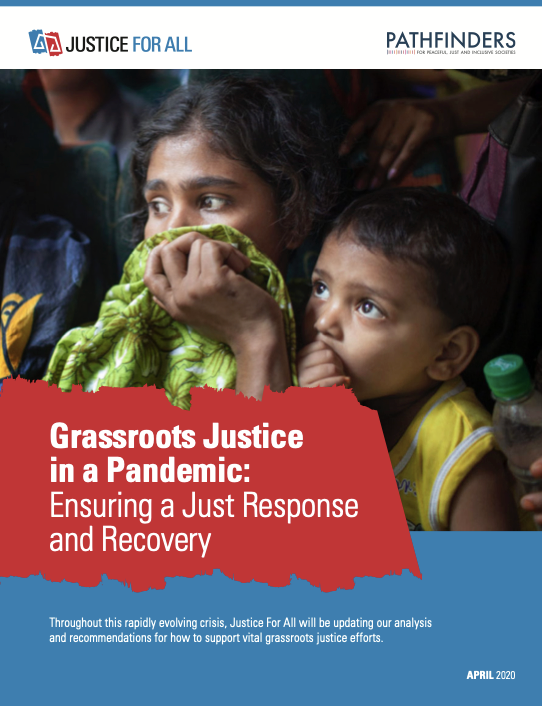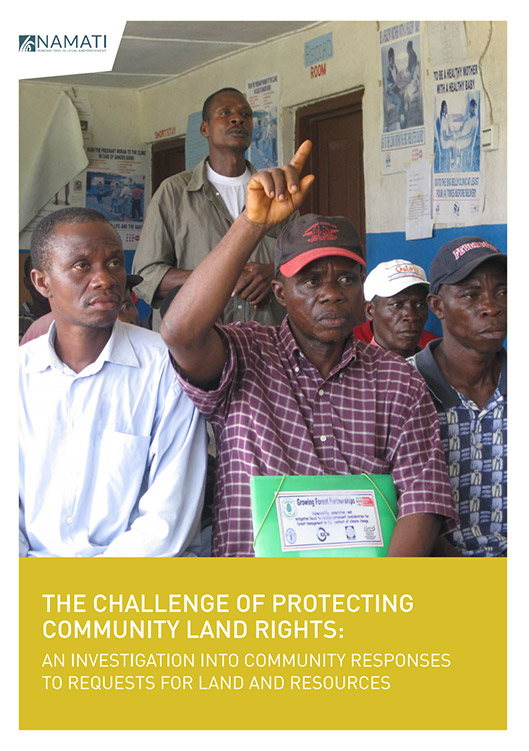Namati: Innovations in Legal Empowerment
Namati is an international organization that tests the potential of legal empowerment through innovative interventions and research. Through our work, we seek a better understanding of the impacts of legal empowerment and the most effective mechanisms for achieving them.
As a means of cultivating a more robust movement for legal empowerment, Namati also hosts a growing Global Legal Empowerment Network of practitioners and supporters. Network members are active in every continent in the world, whereas Namati’s programs and research focus on exploring the potential of legal empowerment in specific countries, including Sierra Leone, India, Liberia, Mozambique, and Uganda.
Mission: Building a movement of grassroots legal advocates
Resources
Displaying 6 - 10 of 69Grassroots Justice in a Pandemic: Ensuring a Just Response and Recovery
Communities around the world are reeling from the repercussions of the COVID-19 pandemic and measures taken to contain it. Now more than ever, the ability to know, use, and shape the law is critical. Access to health care and various forms of relief hinge on the ability to know one’s rights and navigate complex systems. As emergency actions escalate, citizens must ensure that governments do not use the pandemic as an excuse to entrench unjust or discriminatory policies.
The Challenge of Protecting Community Land Rights: An Investigation into Community Responses to Requests for Land and Resources
A new wave of agricultural commercialisation is being promoted across Africa’s eastern seaboard;by a broad range of influential actors – from international corporations to domestic political and business elites. Growth corridors;linking infrastructure development;mining and agriculture for export;are central to this;and are generating a new spatial politics as formerly remote borders and hinterlands are expected to be transformed through foreign investment and aid projects.
The Challenge of Protecting Community Land Rights: An Investigation into Community Responses to Requests for Land and Resources
From 2009 until 2015, Namati and its partners Centro Terra Viva (CTV) in Mozambique, Land and Equity Movement in Uganda (LEMU), and Sustainable Development Institute (SDI) in Liberia supported more than 100 communities to document and protect their customary land rights.







